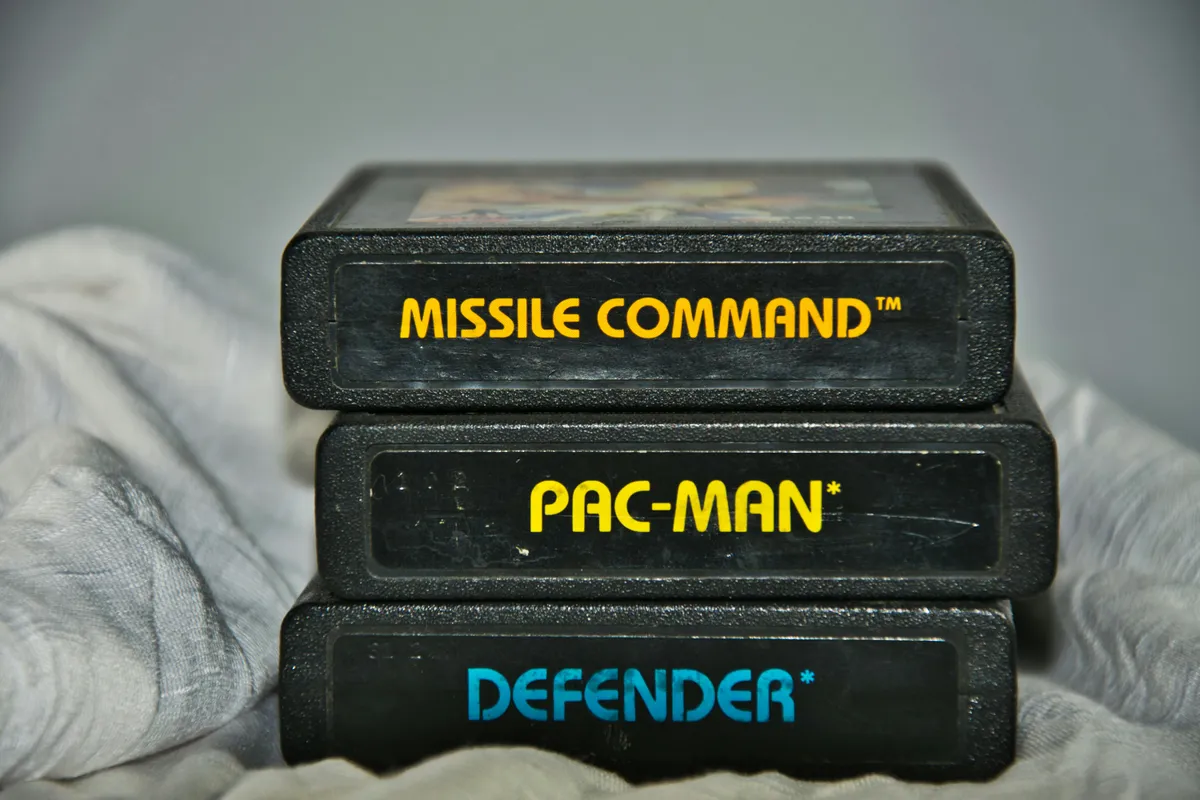Regulatory Road
Game ownership and preservation in the digital age done right

There is a lot of talk about game ownership and preservation happening in the last few years and to my surprise, a whole bouquet of solutions keeps making the rounds online. There are retro gamers cuddling their beloved cartridges. Game pirates thumping their chests and proudly presenting USB sticks, holding their entire childhood gaming experiences in one hand. And there is always a stubborn console gamer in every thread, planting a flag by stating they are "still only buying physical".
Meanwhile, the online gamers are just truly and thoroughly fucked, so all they do is mostly bitch, moan and sign online petitions. (Please consider signing it as well, it's very commendable)
There are a few commercial initiatives to solve this issue as well:
- Official faux console remakes, like for the NES and SNES.
- Emulated console remakes like the Super Pocket classic game collections.
- Limited Run special edition releases (which fell from grace after players noticed the quality of those mediums was so poor they often would just not work).
I think all the above-mentioned efforts are fine but should be viewed as supplementary at best. What I have an issue with is that some people are promoting the "physical copy" as the primary way to preserve ownership. This is not helpful, because it gives the publishers an easy way out when pressed on digital game ownership and it has a bunch of drawbacks over a digital copy.
Requiring special hardware means that if the hardware breaks, the game goes away with it. Furthermore, having a digital copy is the only safe place (when backed up on internet-based storage)- every other media is prone to rot, especially self-burned CDs are notoriously short-lived, but even professionally produced CDs can fail after 25+ years. People collecting retro CD releases on a shelf might actually have lost a lot of their stuff without even knowing it. Even if these things would be of stellar quality, all physical media comes with an expiration date.
Given time, entropy eats everything. It's the law.
So we need a way to actually own digital games. So let's stop pretending as if this is not possible and talk about some actual technical solutions to ownership, game updates and online servers.
Ban DRM. Period.
DRM is the root of all evil. It introduces some or all of these pain points for gamers:
- Always-online requirement: Constant internet connection required, no offline play
- Performance degradation: In some cases severe performance problems are introduced, especially problematic for lower end hardware
- Longevity: Might not work on older or future systems, may become unplayable over time
- Ownership: Ties ownership to a platform or account, if the platform goes away, access to the purchased title is gone
The often cited irony here is that games are still cracked and pirated all the time and people who play pirated games see none of these issues — only paying customers do. We can only speculate about the motivation that makes people pirate games, but two logical answers stand out:
- they are fed up with certain DRM induced issues and don't want to spend money on DRM'd games, especially from notorious publishers
- they wouldn't buy those games anyway because they just pirate for sport, DRM or not
If those assumptions are true, even to a degree, it means DRM mostly hurts the customer and might even be detrimental to the publishers' bottom line.
DRM has to go. Without it, a huge chunk of problems with preservation and ownership just vanish.
Gladly, there already is a place to buy DRM-free digital games with the GOG digital store, to preserve games and give people actual ownership of their games, by making the games downloadable (binary executable, game data — and frequently even extras like manuals, wallpapers).
The catalogue is not complete by any means, but a surprising number of newer games are on it, especially the CD Project Red titles, as the platform belongs to them.
Point here: It's doable and it's being done.
Force publishers to distribute game updates via decentralised open protocols
Being able to purchase and download a copy of a game is great, but nowadays, the life-cycle of a game usually includes several updates, both new game content and bug fixes.
The simplest implementation of a decentralised update distribution probably is BitTorrent. Funny enough, this has been done since the early days of World of Warcraft by some studios. Not for the benefit of players, mind you, but as a cost-cutting measure. Distribution through a peer-to-peer network saves a lot of server bandwidth and therefore cost.
BitTorrent has a bad reputation because many people associate it with piracy. But at it's core, it's really just a technology for decentralised file storage.
The reason why I believe the update mechanism needs to be a decentralised one, is that it needs to be decoupled from centralised servers of distributors, so neither of these parties can take away the ability to update a bought game.
If updates are distributed only via centralised platforms, then if that distributor goes offline/bankrupt, the customer is without access to updates.
If a game has some die hard fans, with a BitTorrent-based system, the fans could themselves make sure that updates are available forever, just by hosting (seeding) the torrent.
And if you bought and downloaded a copy of a game from a now defunct game store — you can just start it and update it like nothing happened.
The beauty of BitTorrent is: If even one person on the internet thinks this file is worth keeping, it's available to everyone — and files in high-demand get distributed from multiple peers, making the distribution cheap and efficient.
It really is a technical marvel when you think of it.
It's doable and has been done in some shape or form for decades.
Force publishers to release client + server software
There comes a time when publishers or game studios see that player numbers are getting so low that maintaining a game server is just not profitable anymore. Those services are, of course, allowed to die peacefully.
The issue is that the game client software, which is often purchased at an upfront cost, cannot work without the server software. So the customer is locked out of their game experience, sometimes only a few years after they bought the game.
Unnecessary to mention that this also makes game preservation impossible.
Publishers should be forced to release the server software to the public, once they are shutting down official servers.
Some people argue that the server software could just be a binary executable. This would allow publishers to include proprietary code they licensed themselves inside that executable, without breaching contracts, NDA's etc.
I'd argue this is not enough and a free and open-source license is needed, because closed source server software could and will include bugs and security issues, which would render the software unusable without further maintenance.
A free software license would allow for updating the software to stay up to date with modern server architectures and security measures.
This would of course impact the business model of 3rd party companies licensing proprietary backend technology to game companies, but I believe this disruption is warranted in the name of consumer protection and cultural preservation.
With this regulation in place, fans of the game could keep enjoying it with their communities and maybe even give the game new life with mods and new features.
Notable examples of this have been id Software with their releases of server code for Quake and BioWare with their release of the Neverwinter Nights server code.
It's doable and has been done.
Conclusion
There are absolutely ways to enable and preserve ownership of games long after a publishers demise or when they stop being interested in selling or maintaining their games. I believe this three-pronged approach would do wonders for customer rights and game preservation. People could forever share their beloved childhood experiences, one generation to the next.
But even though I'm a fan of small government, I believe Regulatory RoadTM is the only way to get there. Initiatives like the aforementioned Stop killing games are a great first step and even if it should fail (right now looks like it might be a last-minute raging success), I'm hoping this is just one of many initiatives starting to give the movement some momentum.


Discussion